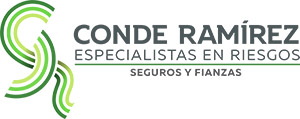AXA Posts Higher-Than-Expected $7.6B Profit, Ahead of U.S. IPO

French insurer AXA posted higher-than-expected 2017 net profits and stronger earnings in the United States, ahead of the planned flotation of its American life insurance and asset management businesses in the second quarter this year.
AXA, which ranks as Europe’s second-biggest insurer in terms of market capitalization behind Germany’s Allianz, reported earnings per share growth at the top of its targeted range of 3-7 percent a year over the 2016-2020 period.
It said it had not been hit as hard as some of its rivals by a series of costly natural catastrophes in 2017, thanks to reinsurance contracts and its diversified business model.
AXA posted a 2017 net profit of 6.21 billion euros ($7.6 billion), while analysts had on average forecast net profit of 5.97 billion euros in a Reuters poll.
The company proposed a 2017 dividend of 1.26 euros a share, up 9 percent and corresponding to a payout ratio of 49 percent. The dividend topped analysts’ estimates of 1.20 euros.
AXA’s results came out better than those earlier this month from Allianz, with the German group reporting a worse than expected fourth-quarter net profit.
U.S. Flotation
AXA shares were flat in early session trading, but the stock nevertheless outperformed a weaker European insurance sector, as analysts welcomed AXA’s results.
“Overall these are good results with the dividend beat as the key positive,” wrote analysts at brokerage Keefe, Bruyette & Woods, which kept a “market perform” rating on AXA.
Faced with tighter regulations and declining investment returns, AXA is seeking growth in areas such as property and casualty insurance for businesses, savings products that do not tie up too much capital, health insurance and Asian operations.
“Health was our fastest growing business in 2017,” AXA said in a statement, adding it had for the first time crossed a 6 billion euros mark in terms of overall underlying earnings.
It plans to float its American life insurance and asset management businesses in order to free up capital and pursue takeover targets elsewhere.
“We would reinvest funds in our privileged segments, such as health and protection, commercial business lines,” chief financial officer Gerald Harlin told journalists on a call.
“If we don’t have any opportunities, we could eventually proceed to share buy-backs,” he added.
($1 = 0.8145 euros) (Reporting by Maya Nikolaeva and Matthieu Protard; editing by Sudip Kar-Gupta and Alexander Smith)
 Fianzas y Seguros CRYA
Fianzas y Seguros CRYA
